|
Recognition from
DiversityBusiness.com during
2016 Awards Ceremony in New York City
Last month I was honored to be
included in the 16th Annual National
Entrepreneurship Summit hosted by
DiversityBusiness.com in New York.
The award was given for being in the
top 500 privately-owned women-owned
businesses in the United States.
DiversityBusiness.com chooses
“America's Top Business" award
recipients based on annual gross
revenue and a business profile.
According to event organizers, State
and Federal Communications was
highlighted as one of the leading
entrepreneur companies in the United
States, and was presented several awards at
the ceremony that included being
named:
-
#392 of the top 500 Women Owned
Businesses in the United States
-
#52 of the top 100
Privately-held Businesses in
Ohio
-
#37 of the top Diversity Owned
Businesses in Ohio
-
#17 of the top 50 Women Owned
Businesses in Ohio, and the only
one in Akron, Ohio.
More than 1.5 million businesses in
the United States participated in
the 16th annual business survey
conducted by DiversityBusiness.com,
a web-based business publisher. The
organization’s “Top Business List”
offers the most comprehensive look
at the strongest segment of the
United States economy - America's
privately held companies. According
to DiversityBusiness.com, these
companies differentiate themselves
in their markets through dedication
and hard work that stimulates
economic growth in America.
The “America's Top Business" program
is sponsored by major brands that
include U.S. Postal Service,
Wal-Mart, Apple, Northrop Grumman,
Time Warner, Hilton, Raytheon, and
Colgate Palmolive, among others.
We have won an “America's Top
Business" award every year since
2008.
Being ranked highly with other
leading companies across America is
an achievement we are all proud of
at State and Federal Communications.
It shows our ongoing commitment to
deliver quality government
compliance information and
consulting services to many Fortune
500 companies, associations, and
corporate and contract lobbyists.
This truly is an honor because my
time is always devoted to State and
Federal Communications, the
employees, clients, and the
communities where we live and work.
For information on the event, visit:
http://www.diversitybusiness.com/awardees/
|
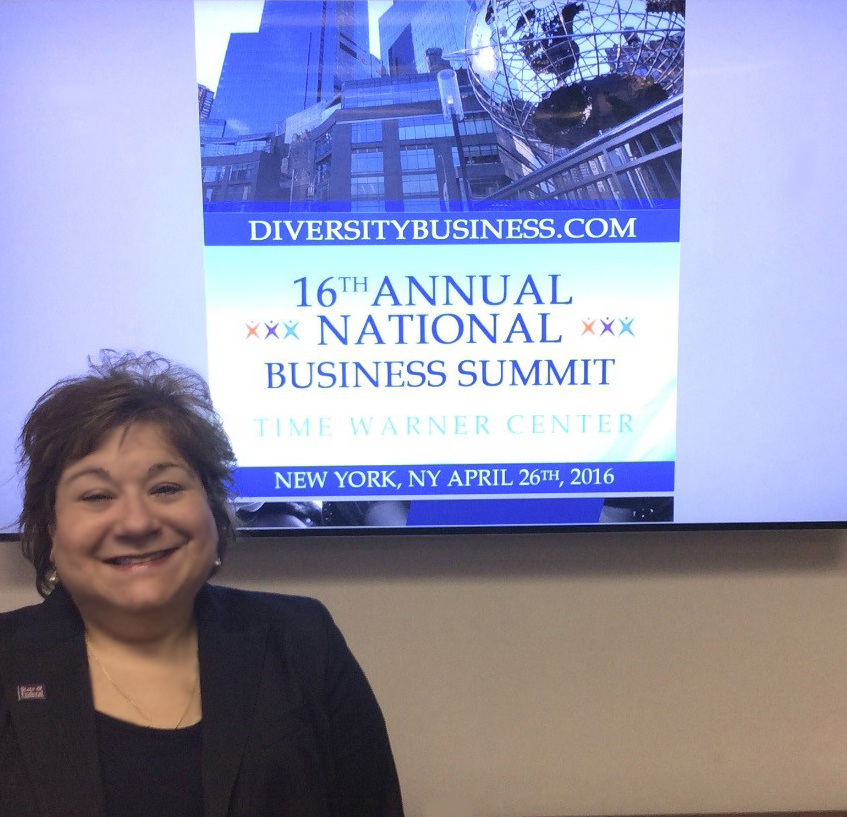 |
|
Ms.
Elizabeth Z. Bartz,
President and CEO of
State and Federal
Communication is honored
by DiversityBusiness.com,
being named #392 of the
leading Women Owned
Businesses in the United
States, #52 of the top
100 Privately-held
Businesses in Ohio, #37
of the top Diversity
Owned Businesses in
Ohio, and #17 of the top
50 Women Owned
Businesses in Ohio, and
the only one in Akron,
Ohio. |
|
Elizabeth Z. Bartz
President and CEO
@elizabethbartz
|
|
|
|
 
Kentucky Extends Corporate Contribution Ban
to Labor Unions and LLCs
Kevin Newman, Esq.,
Research
Associate
The
Kentucky Registry of Election Finance (KREF) must not treat
corporations differently than unions or limited liability companies
(LLCs) for purposes of campaign contributions, according to the
federal court decision in Protect My Check, Inc. v. Dilger, et al.,
3:15-cv-00042-GFVT. Judge Gregory F. Van Tatenhove, of the U.S.
District Court for the Eastern District of Kentucky, concluded
statutory provisions prohibiting contributions from corporations
while allowing contributions from labor unions and LLCs violate the
Equal Protection Clause of the Fourteenth Amendment.
Protect My
Check (PMC) is a nonprofit corporation supporting legislators,
candidates, parties, and political committees who favor
right-to-work legislation. PMC argued the state’s restrictions
prohibiting it from making contributions to those who support its
views, while allowing labor unions and LLCs to make opposing
contributions, creates a disparate treatment of the groups in
violation of the Fourteenth Amendment Equal Protection Clause. PMC
also argued the restrictions prevent corporations from forming PACs
while allowing unions and LLCs to do so. The court agreed, stating
the minor differences in the organizations do not justify varying
levels of restrictions on political speech. The court enjoined KREF
from enforcing section 150 and implementing statutes in a manner
resulting in unequal treatment of corporations, unions, and LLCs.
However, the court did not accept PMC’s First Amendment argument,
ruling a ban on direct corporate contributions does not violate a
corporation’s right of free speech, particularly if the corporation
has the ability to form a PAC.
In response
to the ruling, KREF issued a notice of how it will interpret and
enforce the law going forward. According to the notice, all
corporations, LLCs, and unions will be treated equally.
Corporations, unions, and LLCs may sponsor and administer a state
PAC and pay administrative expenses from corporate, union, or LLC
funds. Corporations, unions, and LLCs are now prohibited from making
contributions directly to candidates, slates of candidates, or
committees. It is unclear whether or not a reinterpretation of the
statute by KREF will settle the issue of a ban on contributions from
organizations. |
|

 Summary of Changes UPDATE Summary of Changes UPDATE
Note Recent Changes to
Compliance Regulations
Michael Beckett, Esq., Research
Manager
FEDERAL: Amendments to a
Municipal Securities Rulemaking Board (MSRB) conflict-of-interest
rule concerning gifts and gratuities are now effective. MSRB Rule
G-20 includes restrictions limiting gifts to $100 for municipal
advisors giving gifts to employees of entities engaged in municipal
securities activities. Municipal advisors are also prohibited from
receiving reimbursement of entertainment expenses from the proceeds
of an offering of municipal securities. The rule is intended to
protect against improprieties and conflicts of interest arising when
regulated entities give gifts related to the municipal securities or
municipal advisory activities of the recipients’ employers.
KENTUCKY: Gov. Matt Bevin signed
a revenue bill containing changes for executive agency lobbyists.
House Bill 80 contains a provision increasing the registration fee
for lobbying executive agencies from $125 to $500 beginning July 1,
2016, and covering the period through June 30, 2018. The change was
included in a last-minute amendment by the Senate on the final day
of the legislative session. The Executive Branch Ethics Commission
had been pushing hard during the closing days of the session to
increase the fee, fearing a budget shortfall would result in cuts to
the commission's staff.
MARYLAND: Gov. Larry Hogan
signed a pay-to-play bill, amending campaign finance reporting
requirements for filers doing public business. House Bill 112
requires filers disclosing contributions to also include
contributions of any subsidiary entity the filer owns or controls by
30 percent or more, regardless of whether the subsidiary is doing
public business in Maryland. A limited exception exists for publicly
traded banking institutions not owned or controlled by anyone in
excess of 10 percent if they are not contracted with Maryland in
connection with public business. The law takes effect October 1,
2016.
MASSACHUSETTS: The Office of
Campaign and Political Finance (OCPF) issued new regulations
concerning coordination between candidates and independent
expenditure-only political committees. The new regulations clarify
definitions for independent expenditures and electioneering
communications in an attempt to define situations in which a
presumption of coordination exists between a candidate and an
outside spender who is expressly advocating on the candidate’s
behalf. The regulations were created by OCPF response to frequent
inquiries about the rules of coordination between candidates and
other political entities.
MISSOURI: Gov. Jay Nixon signed
two ethics bills on Friday, May 6. One bill creates a revolving door
provision for lawmakers and statewide elected officials seeking to
become lobbyists. They must wait at least six months after their
terms end before engaging in lobbying. The second bill requires
candidates to dissolve their campaign committees and either refund
or donate the remaining funds upon registering as lobbyists. Both
bills are effective August 28, 2016.
|
|

Legislation We Are
Tracking
At any given time, more than 1,000
legislative bills, which can affect how you do business as a government
affairs professional, are being discussed in federal, state, and local
jurisdictions. These bills are summarized in State and Federal
Communications' digital encyclopedias for lobbying laws, political
contributions, and procurement lobbying and can be found in the client
portion of our website.
Summaries of major bills are also included
in monthly email updates sent to all clients. The chart below shows the
number of bills we are tracking in regard to lobbying laws, political
contributions, and procurement lobbying.
| |
Total bills |
Number of Jurisdictions |
Passed |
Died |
Carried over
to 2017 |
|
Lobbying Laws |
323 |
42 |
4 |
46 |
6 |
|
Political Contributions |
587 |
48 |
14 |
78 |
15 |
|
Procurement Lobbying |
319 |
43 |
7 |
20 |
0 |
|
|

Jurisdiction Added to our
Website
The number
of municipalities and regional governments our research
associates track continues to grow. We now cover almost
300 municipalities and local governments. This is part of a continuous effort to better serve the
needs of our clients.
In that
effort, we have added abridged jurisdictions to
our website. These entries, condensed due to the limited
number of relevant local laws, provide the core
information our clients need for their government
relations work.
The new jurisdiction is:

 |
W E B S I T E
T I P
The requirement to
register as a lobbyist in some jurisdictions is
triggered by engaging in lobbying or agreeing to lobby
on behalf of an employer. However, many jurisdictions do
not require registration until a threshold is met.
Jurisdictions that have an expenditure threshold require
registration for giving certain gifts to covered
officials. If you are a non-lobbyist planning to provide
gifts to covered officials, consult the Gift Law section
in the Lobbying Law or Procurement Lobbying entries. If
the jurisdiction has an expenditure registration
threshold, notification of the threshold will appear
just below the gift chart. Always check the registration
threshold before becoming active in a jurisdiction, as
the rules may allow you to avoid or delay registration.
Note that even if an individual’s expenditures do not
require registration, the expenditures may still need to
be reported on the employer’s activity reports. |
|
| |
|

ASK THE
EXPERTS
State and
Federal Communications’ Experts Answer Your Questions
Here
is your chance to “Ask the Experts” at State and Federal
Communications, Inc. Send your questions to
experts@stateandfed.com.
(Of course, we have always been available to answer
questions from clients that are specific to your needs, and
we encourage you to continue to call or email us with
questions about your particular company or organization. As
always, we will confidentially and directly provide answers
or information you need.) Our replies are not legal advice,
just our analysis of laws, rules, and regulations.
|
 |
When I talk to state officials, I’m always with my
registered contract lobbyists. That means I’m exempt
from registering, correct? |
|
|
 |
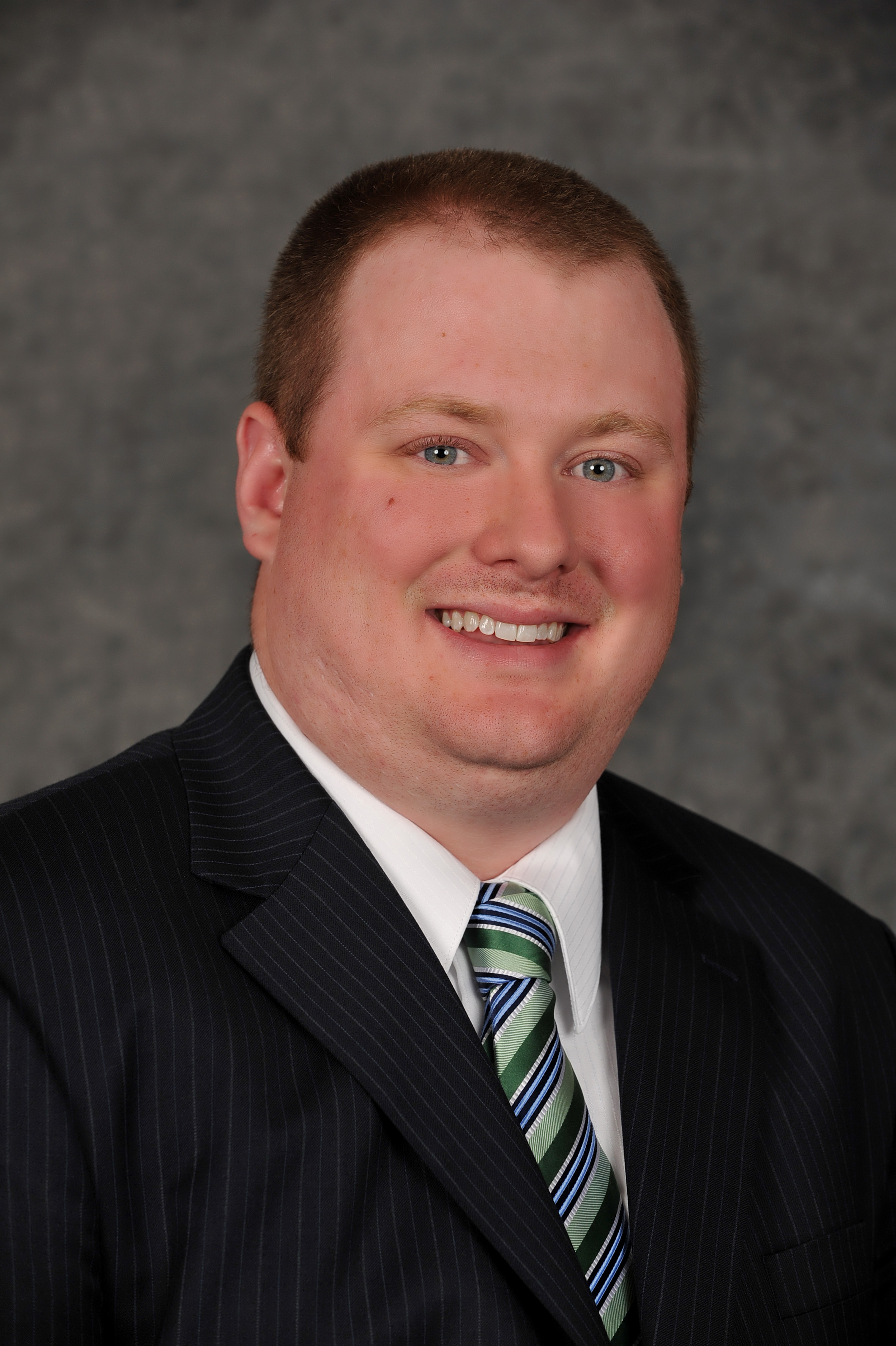
The kind of exemption you are
referring to is commonly called an umbrella exception.
In most instances, being with a registered lobbyist does
not exempt an individual from having to register as a
lobbyist.
California and Utah are two states
with an umbrella exception, but there are limits to
those exceptions. In Utah, an individual is not
considered a lobbyist (and thus does not have to
register) if he or she:
-
Interacts with a public
official in that official’s capacity as a public
official while accompanied by a registered lobbyist
who is lobbying in relation to the subject of the
interaction or while presenting at a legislative
committee meeting at the same time the registered
lobbyist is attending another legislative committee
meeting; and
-
Does not make an expenditure
for, or on behalf of, a public official in relation
to the interaction or during the period of
interaction.
California’s umbrella exception is
the most well-known, but it was narrowed in March. Now,
the umbrella exception will only apply if the
individual:
-
Is an employee of a lobbyist
employer;
-
Meets or speaks with a state
official in the company of a registered lobbyist
retained by the individual’s lobbyist employer; and
-
Participates as a subject
matter expert regarding a legislative or
administrative action at issue.
California’s exception was narrowed
to prevent contract lobbyists from being able to utilize
the exception and avoid registration and reporting
requirements.
As you can see, there are very few
umbrella exceptions allowing you to avoid registration.
And even when a state has an umbrella exception, there
are limits on who can take advantage of them. If you
will be attempting to influence a state official, be
sure to give us a call prior to your meeting to make
sure lobbyist registration will not be required.
Shamus Williams, Esq., Compliance Associate |
|
|

|
|
 |
|

State and Federal
Communications, Inc.
Celebrates Staff Anniversaries
| |
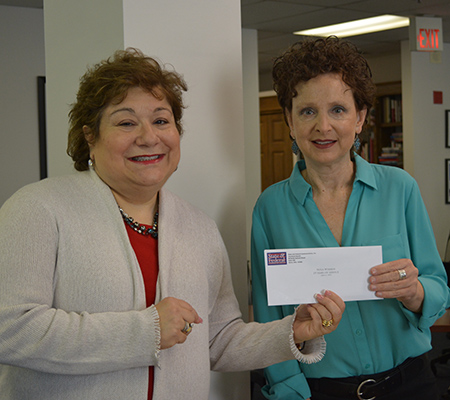
Nola R. Werren, Esq. holds the title in State and
Federal Communications, Inc. as the employee who has
been here the longest. She is currently a Client
Specialist in our Compliance Department. |
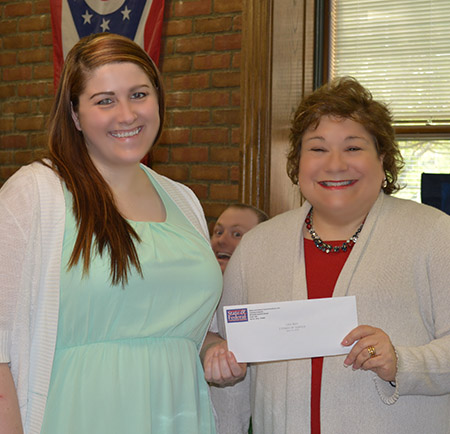
Lisa Kot, Research Assistant, has supported
our Research Department for two years. |
|
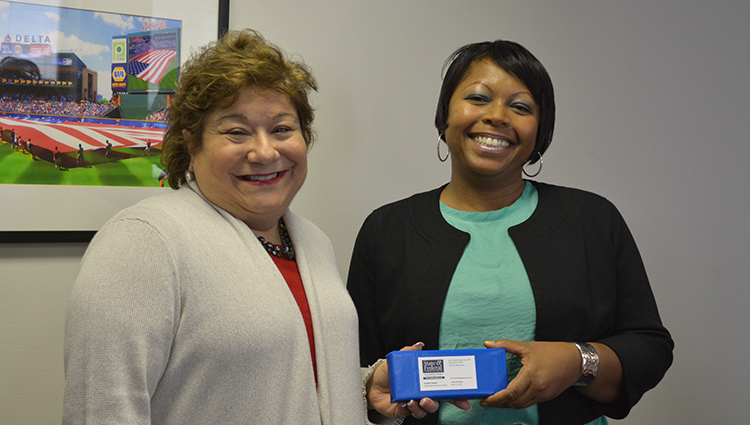
Gamble Hayden, Federal
Compliance Assistant, supports our ALERTS program in the
DC area.
She came on board one year ago. Congratulations.

|
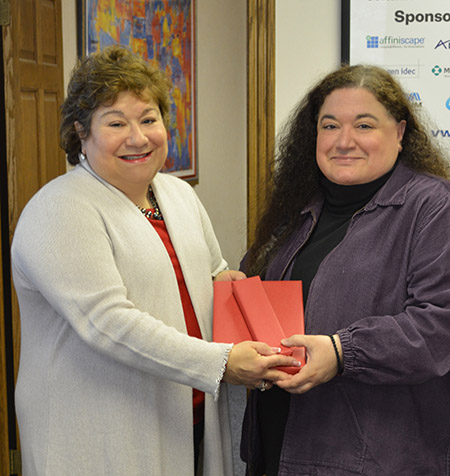 |
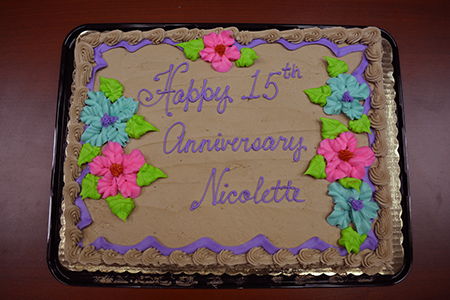
Congratulations to Nicolette Bartz Koozer,
our Sr. Graphics Coordinator, on her 15th Anniversary at
State and Federal Communications, Inc. She came on
board in 2001 after more than 15 years of being our free
lance artist out of northern Virginia. |
 |
J U N E
Each month at our staff
meeting, Elizabeth acknowledges the employment
anniversaries of the staff.
In June, we celebrate the eighth anniversary of Myra
Cottrill, Esq., Client Specialist, and the tenth
anniversary of Dave McPeek, Business and Operations Analyst.
These employees are essential members of the staff.
Congratulations to you. |
 |

Dave McPeek, Business and Operations
Analyst, has reached his 10th anniversary at State and
Federal Communications, Inc.
We will be honoring this anniversary on June 30, "Dave
McPeek Day"!
|
| |
| |


Plan to say hello at future
events where State and Federal
Communications, Inc.
will be attending and/or
speaking regarding compliance issues. |
|
Events
|
June 6-9 |
BIO International Convention, San
Francisco, California |
|
June 8-10 |
NCSL Symposium for Legislative Leaders,
Washington, DC |
|
June 13 |
US Chamber of Commerce Small Business
Summit, Washington, DC |
|
June 16 |
Akron Roundtable, Akron, Ohio |
|
June 20-22 |
PAC Grassroots, Alexandria, Virginia |
|
June 23 |
Akron Roundtable - R.J. Nemer,
Akron, Ohio |
|
June 24-27 |
US Conference of Mayors,
Indianapolis, Indiana |
|
June 28 |
Wal-Mart Manufacturing Summit,
Bentonville, Arkansas |
|
|
COMPLIANCE
NOW is published for our customers and friends.
Click here
to
SUBSCRIBE
or
click
here to UNSUBSCRIBE.
Click here to send us comments regarding
the COMPLIANCE NOW e-newsletter.
State and
Federal Communications, Inc. | Courtyard Square | 80 South
Summit St., Suite 100 | Akron, OH 44308 |
| 330-761-9960 |
330-761-9965-fax | 888-4-LAW-NOW|
http://www.stateandfed.com/

|
 |
The Mission of State
and Federal Communications is
to make sure that your
organization can say, "I Comply."
We are the leading
authority and exclusive information source
on
legislation and regulations surrounding campaign finance
and political contributions; state, federal, and
municipal lobbying; and procurement lobbying.
Contact us to learn how
conveniently our services will allow you to say "I
Comply" for your compliance activities.
http://www.stateandfed.com
|
www.stateandfed.com |
![]() View Full Print-Friendly Version
View Full Print-Friendly Version